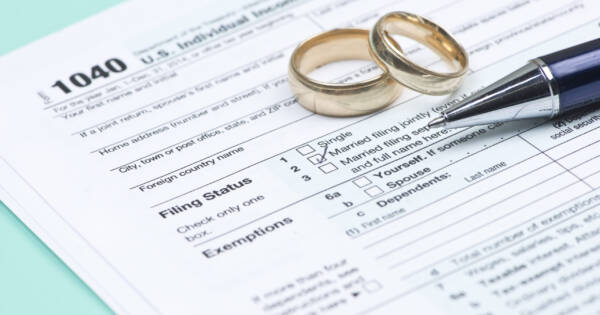Waiting for a tax refund can feel stressful, especially when it takes longer than expected. Even though most returns are processed without issues, a variety of factors can slow things down, from simple filing mistakes to verification steps or payment offsets. Some delays come from information on the return itself, while others result from how the IRS processes refunds. If yours hasn’t arrived yet, understanding the most common reasons can help you figure out what to do next.
Check With IRS
Let’s start at the most obvious spot. The IRS actually has numerous ways for you to check the status of your refund. If you go to their website, you’ll find all the information you need. There’s the IRS2Go mobile app or a desktop version. You need your SIN (or ITIN) number, your filing status, and the exact amount of your refund, according to the tax return you filed.
The IRS recommends that you don’t try to call them to inquire about your refund. They just don’t have the manpower to deal with those calls. However, if the Check My Refund Status tool indicates that you should call, then go ahead and get on the phone. One thing you definitely should not do is file a second tax return. That will just raise red flags within their automated system. It will probably delay your tax refund even further. You don’t want that.
Incomplete Information
One of the main reasons your tax refund might get held up, according to the IRS, is incomplete information. It could be as innocent as an address missing the ZIP code, a missing signature, or a blank line (that shouldn’t be blank). Tax filings that have incomplete information are a huge issue for the IRS. These small mistakes can delay processing times and eventual refunds.
You should carefully review your tax return before you file it. Double check every box, every line, and every calculation. If you’re using tax software (and you really should be), most of these mistakes will be caught for you. However, if you’re still mailing in paper tax returns, it’s critically important to ensure they are both legible and properly completed. Anything less than perfect could create a delay for your refund.
Bank Account Issues
Embrace the future (okay, the present) of digital financial transactions. If the IRS has your banking information, they can deposit your refund directly into your checking account. You’ll get your refund much sooner if you don’t have to wait around for a check in the mail. (It also means your check can’t be stolen or lost).
If the IRS doesn’t have your bank account on file, you could find yourself waiting longer for your refund. Not only does regular mail take longer than an electric transfer, but mail can get lost, stolen, or otherwise delayed by things like weather, postal strikes, or even traffic jams. The best way to get your refund quickly is to ensure the IRS has your accurate banking information. If you recently changed banks or switched accounts, you need to make sure the IRS knows about it. Otherwise, their attempt to send your refund via direct deposit will be returned. Then they have to process that return and mail you a check.
Back Taxes
If you owe back taxes to the IRS, any refund you’re expecting will be applied to that amount owed. This could result in you receiving a smaller refund than expected — or no refund at all. It’s important to keep track of (and pay) any back taxes you might owe. Those old debts will accrue interest and late fees, costing you even more money. (Or eating into any future refunds you’re entitled to.)
It’s not just federal taxes that could be clawing into your refund. State taxes could also be held back, in some cases. There are a few other debts too, which we’ll talk about in a minute. The important thing to remember, though, is that Uncle Sam won’t be forgetting about these debts. So you can kiss your tax refund goodbye until these are cleared up. If you’re not sure whether you might owe back taxes, contact the IRS directly to find out — especially if you think it’s a mistake.
Identity Theft / Fraud
Identity theft and fraud are big issues in the United States. The Federal Trade Commission (FTC) received 4.8 million identity theft and fraud reports in 2020 alone. That’s up 45 percent from the year before (3.3 million in 2019). This increase is mostly due to the 113% rise in identify theft complaints. This issue can extend to your tax refund.
The IRS notes that “tax-related identity theft occurs when someone uses your stolen personal information, including your Social Security number, to file a tax return claiming a fraudulent refund.” Crooks can also have your tax refund routed to another address, where they quickly collect and cash your refund check. One of the best ways to combat this is to file your tax return as early as possible every year. If you’re expecting a refund and haven’t received it after 28 days, be sure to contact the IRS. (Use the tools we mentioned above.) If your refund has been issued, make sure it was sent to the right bank account or address.
Mail Delays
The IRS aims to issue any refund in less than 21 calendar days after your return is received. However, this target does not include potential delays caused by the U.S. Postal Service. Delays in the processing and shipping of mail are quite common these days, especially with ongoing cutbacks at USPS. Your refund may just be stuck in the mail backlog.
It was recently reported that one in five pieces of mail across the U.S. was delivered late in the first three months of 2021. As mentioned, the fastest way to receive a tax refund is through direct deposit into a bank account. However, if you elected to receive your tax refund through the mail, you could be at the mercy of the postal system. Check with the IRS that your refund has been processed and mailed to the correct address. If it has, then chances are it’s in the postal system. Keep waiting.
Filing A Paper Return
The IRS encourages all taxpayers to file their tax return electronically. You should also set up direct deposit to get funds owed to you much quicker. It truly is the easiest and quickest way, with the proliferation of easy-to-use electronic devices and internet connection available pretty much everywhere in the country. If you’re not adapting to this digital reality, you’re just slowing down your own refund.
As a rule, anyone who files a paper tax return will end up waiting much longer to have it processed. That includes waiting longer for any refund issued. The IRS says it can take up to eight weeks for a refund to be issued if it’s filed as a paper return. If you want your refund as quick as possible, don’t stick to old school methods. Use one of the popular tax software options, and get your refund sent directly to your bank account.
Other Debts
It’s not just back taxes that could swallow up your refund. The IRS can also apply your refund to what are known as “Other Debts.” We know, that’s not a very creative label. These can include past due child support payments, federal student loan debt, unpaid state income taxes, and unemployment benefits that were applied for incorrectly and need to be repaid.
If you have any of these outstanding debts, then don’t expect your full refund. Check with the IRS if you’re not sure. They will be able to tell you whether your refund was applied to any of these debts you might owe. It’s important to note that the IRS won’t take your tax refund to pay student loans that are in good standing. As long as you’re making your regularly scheduled payments, you will still get your refund like normal.
Security Measures
Even if you weren’t a victim of identity theft or fraud, sometimes even the slight threat of these illegal activities can trigger IRS security measures. Naturally, these red flags will delay your refund. If the IRS suspects something weird is going on, for any reason, they may ask you confirm certain pieces of information. This is often done by sending you a Form 5071C, which helps verify your identity and information. If you receive one of these, don’t ignore it.
These extra security checks are important, but they can cause substantial delays. Several U.S. states also have their own policies and procedures for delaying tax refunds in order to help prevent tax-related identity theft or refund fraud. If your refund is somewhere in limbo, check with your state’s Department of Revenue or Office of the Tax Commissioner. They will be able to see if your state tax refund is delayed because of a potential security review.
Form 8379
If your return included the injured spouse allocation form (Form 8379), your refund being delayed is normal. This rare tax return circumstance can take at least 14 weeks to process. You only file this form in order to regain your share of a previous joint tax return that was seized due to your spouse’s past debts. It could an old tax obligation, child support, or some sort of federal loan (more likely student debt).
In this case, the term “injured” doesn’t mean a physical ailment. The “injured” spouse is someone who didn’t get their allocated tax refund because of a debt that their spouse — but not them — still owes. It can be a sticky financial situation. Even worse, some states are classified as “community property” states. They have different rules to determine whether an injured spouse is still entitled to any refund money.
Audit
The number one reason that tax refunds are delayed is an impending audited. If everything else is fine with your return, but you still haven’t received your refund within four weeks, prepare for the worst. There’s a decent chance that your file has been referred to the IRS Audit Department. This means that your finances will be scrutinized and any refund could be contested, reduced, or invalidated.
Luckily, the IRS audits only about 0.6% of all individual tax returns every year. The chance that you’ll be randomly audited is extremely small. On the off chance that your return is selected for an audit (either randomly or because your return triggered a red flag), the processing of your refund will be delayed until the audit is complete. More information on the audit process can be found on the IRS website.
The Bottom Line
If you’re confident that you filed your tax return with all the correct information, then don’t panic. Your refund is almost certainly on the way. Just have some patience. Remember that the IRS is staffed by regular human beings, all of whom have been affected by the pandemic in one way or another. It’s perfectly normal that things are going a bit slower right now.
It can be frustrating to wait for a big check but not know exactly what it’s arriving. We get that. You should definitely check the status of your refund using the IRS online tool. It may give you a hint that something went wrong with your tax return. It could be a simple mistake like a typo in your address or banking information. In that case, it’s relatively easy to correct.





